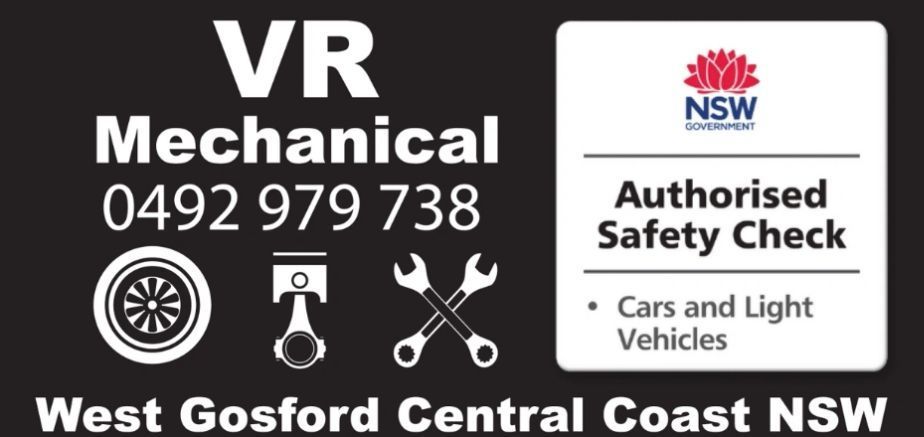Frequently asked questions
Have questions about car servicing, repairs, rego checks or mobile mechanics? You’re in the right place! Here you'll find answers to some of the most commonly asked questions about vehicle maintenance, safety checks and repairs. Whether you're unsure about how mobile mechanics work, when to service your car or what to do when you notice a problem, we've got you covered.
If you don’t see your question here, feel free to call 0492 979 738 or submit an enquiry—we’re happy to help!
-
What is a Pink Slip, and do I need one?
A Pink Slip (E-Safety Check) is a safety inspection required in NSW for vehicles more than five years old before they can be registered. It confirms your vehicle meets NSW road safety standards and is safe to drive.
During a Pink Slip inspection, a mechanic checks:
- Brakes and suspension
- Tyres and steering components
- Lights, indicators, and electrical systems
- Seat belts and safety features
- Fluid leaks and engine condition
If your car passes, the mechanic will electronically submit your Pink Slip to Transport for NSW, allowing you to renew your registration. If it fails, you’ll receive a report outlining necessary repairs. Once these are fixed, you can retest your vehicle within 14 days without extra inspection fees.
A mobile mechanic can perform Pink Slip inspections at your home or workplace, saving you a trip to a workshop.
-
What are the signs my car needs brake repairs?
Brakes are one of the most critical safety components, and several warning signs indicate they need attention:
- Squeaking or grinding noises – Worn-out brake pads can cause squeaking, while grinding often means metal is rubbing against metal, requiring immediate attention.
- Soft or spongy brake pedal – If your brake pedal feels soft or takes longer to stop, there could be air in the brake lines or low brake fluid levels.
- Vibrations when braking – This could be a sign of warped brake rotors, which affect braking performance and need resurfacing or replacement.
- Car pulling to one side when braking – This may indicate uneven brake pad wear, a stuck calliper, or an issue with the braking system.
If you notice any of these issues, don’t delay—brake problems can worsen quickly and impact your safety. A professional mechanic can inspect, diagnose, and repair your brakes to ensure optimal stopping power and performance.
-
What should I check when buying a used car?
Buying a used car? A pre-purchase inspection is one of the best ways to avoid costly mistakes. Before committing to a vehicle, check:
- Engine condition – Look for leaks, strange noises, or excessive exhaust smoke.
- Brakes and suspension – Take the car for a test drive and check for squeaking, vibrations, or uneven braking.
- Tyres and wheels – Uneven wear may indicate alignment or suspension issues.
- Service history – A logbook with regular servicing records suggests the car has been well maintained.
- Accident history – Check for mismatched paint, panel gaps, or rust, which may indicate past repairs.
A professional used car inspection can provide a detailed report on the vehicle’s mechanical health, giving you confidence before buying.
-
What’s the difference between a minor and major car service?
A minor service is a routine maintenance check typically done every 6-12 months and includes:
- Oil and filter change
- Brake and tyre inspection
- Fluid top-ups (coolant, transmission, brake, and power steering fluid)
- Basic safety and performance checks
A major service is more in-depth and usually required every 40,000–100,000 km, depending on the manufacturer. It includes everything in a minor service, plus:
- Spark plug and air filter replacement
- Brake fluid flush and transmission service
- Timing belt/chain inspection or replacement
- Detailed checks on suspension, battery, and cooling systems
Staying up to date with both minor and major servicing helps prevent expensive repairs and unexpected breakdowns.
-
What 4x4 accessories should I consider for off-road driving?
If you're planning on taking your 4WD off-road, certain 4x4 accessories can improve safety, performance, and functionality. Popular upgrades include:
- Bullbars – Protects your vehicle from animal strikes and impacts.
- Snorkels – Improves airflow and allows for safe water crossings.
- Suspension upgrades – Enhances ground clearance and load capacity.
- Roof racks & storage solutions – Ideal for extra gear, tools, or camping equipment.
- Driving lights & LED bars – Essential for night driving and off-road visibility.
Proper installation is key—a professional mobile accessory fitting service ensures your 4x4 accessories are securely and correctly installed for safe, reliable performance.



